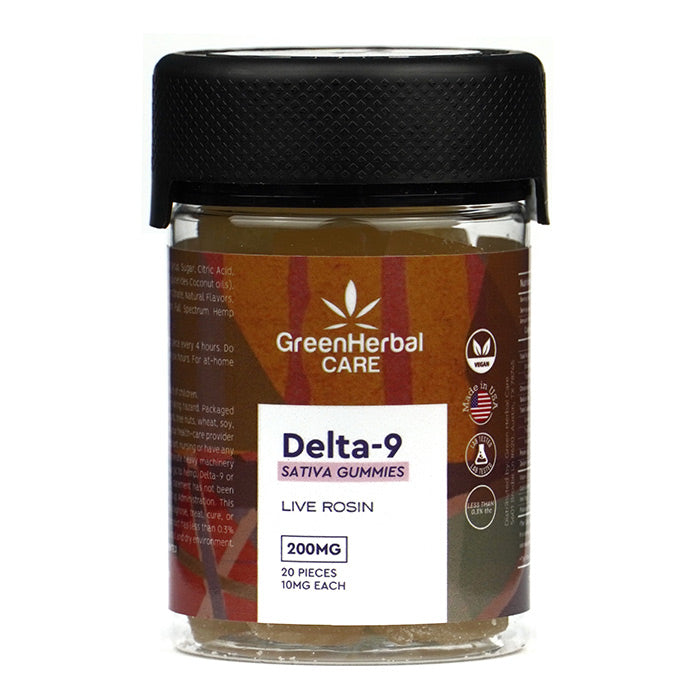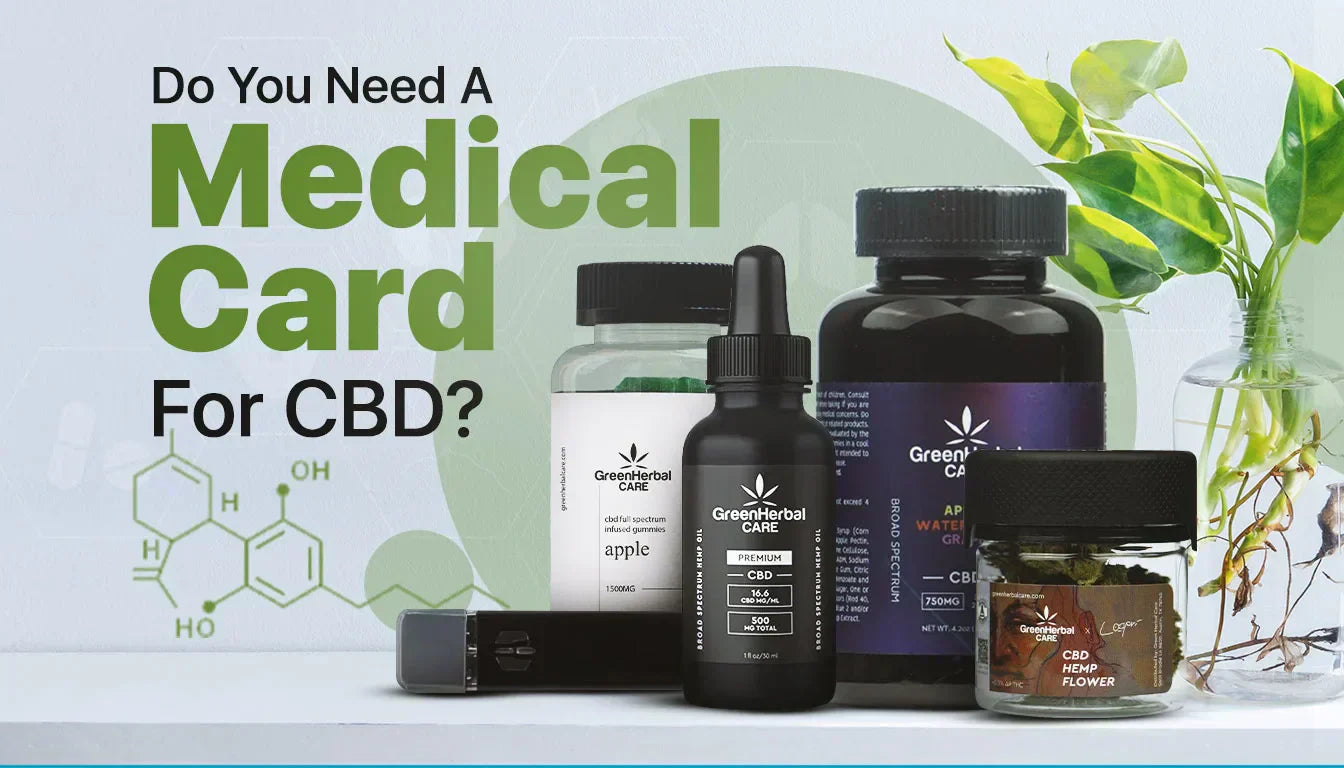CBD is everywhere. From oils and tinctures to gummies and topical creams, cannabidiol has become one of the most popular wellness supplements of the last decade. But with its rise in popularity has also come confusion—especially around legality. Many new users wonder: do you need a medical card for CBD?
The answer depends on several factors: where your CBD comes from (hemp vs marijuana), what state you live in, and how much THC is present in the product. This guide breaks down everything you need to know about medical cards, CBD access, legal distinctions, and how to safely buy quality products in 2025.
What is CBD?
Cannabidiol (CBD) is one of the primary cannabinoids found in cannabis plants. Unlike THC (tetrahydrocannabinol), it is non-psychoactive, meaning it does not cause a “high.” Instead, CBD is commonly used for its potential calming, anti-inflammatory, and therapeutic properties.
Sources of CBD
-
Hemp-derived CBD: Extracted from hemp plants that legally contain ≤0.3% THC under the 2018 Farm Bill. These products are federally legal and widely sold.
-
Marijuana-derived CBD: Extracted from marijuana plants that typically contain higher levels of THC. These are still federally illegal but permitted under certain state medical or adult-use cannabis programs.
Popular CBD Products in 2025
-
CBD Oils and Tinctures – Versatile, fast-acting, and easy to dose.
-
CBD Gummies and Edibles – Popular for convenience and flavor.
-
Topicals and Creams – Used for localized relief of pain or inflammation.
-
Vapes and Flowers – Provide rapid effects but raise long-term safety questions.
-
Capsules and Softgels – Preferred for consistent dosing.
Shop CBD Products
What is a Medical Marijuana Card?
A medical marijuana card (also called an MMJ card or cannabis card) is an identification issued by a state medical cannabis program. It allows patients with qualifying health conditions to legally purchase and use medical cannabis products, including marijuana-derived CBD.
Who Issues It?
-
Issued by state governments, not federal authorities.
-
Requires a recommendation from a licensed physician or healthcare provider.
Typical Qualifying Conditions
While the list varies by state, common conditions include:
-
Chronic pain
-
Anxiety and depression
-
Epilepsy and seizure disorders
-
Cancer and chemotherapy side effects
-
Multiple sclerosis
-
PTSD
-
Crohn’s disease
In 2025, some states have expanded programs to include general wellness use, while others remain restrictive.
Is a Medical Card Required for CBD?
The short answer: not for hemp-derived CBD, but possibly for marijuana-derived CBD.
Hemp-Derived CBD
-
Legal under the 2018 Farm Bill as long as it contains ≤0.3% THC.
-
Widely available online, in wellness stores, smoke shops, and even some pharmacies.
-
No medical card required.
Marijuana-Derived CBD
-
Contains >0.3% THC and falls under state-regulated cannabis laws.
-
Only available in licensed dispensaries in states with medical or recreational cannabis programs.
-
Medical card required if your state does not allow recreational sales.
Federal vs State Law in 2025
-
Federally: Hemp CBD is legal; marijuana CBD is not.
-
State level: Rules vary widely. Some states allow recreational sales to adults 21+, while others limit access strictly to medical patients.
CBD With vs Without a Medical Card: Pros & Cons
Without a Medical Card
Pros
-
Easy access online or in retail stores.
-
No doctor’s visit or paperwork required.
-
Legal nationwide if hemp-derived and compliant with THC limits.
Cons
-
Limited THC content (≤0.3%).
-
No access to stronger formulations that may benefit certain conditions.
-
Fewer product protections compared to regulated dispensaries.
With a Medical Card
Pros
-
Access to high-potency CBD and CBD/THC ratio products.
-
Legal protection under state programs.
-
Guidance from licensed dispensaries and healthcare professionals.
-
In some states, reduced taxes or expanded purchase limits.
Cons
-
Requires a doctor’s recommendation.
-
Application fees, renewal costs, and state registry paperwork.
-
Not valid across state lines.
How to Get a Medical Card (If needed)
For those living in states that restrict marijuana-derived CBD access, obtaining a medical marijuana card can open doors to more options.
Step-by-Step Process
-
Consultation with a Licensed Physician – Must confirm a qualifying condition.
-
Documentation – Medical records and proof of residency.
-
State Application – Apply through your state’s medical marijuana program.
-
Approval & Card Issuance – Receive a physical or digital card.
-
Access – Purchase products from licensed dispensaries.
Costs in 2025
-
Doctor evaluation: $100–$250.
-
State application fee: $50–$150 (varies by state).
-
Renewal: Typically required annually.
Tips
-
Choose a licensed provider or telehealth service.
-
Check for hidden fees in “express approval” services.
-
Keep copies of your COA (Certificate of Analysis) for purchased products.
Safety, Quality & Legal Considerations
Lab Testing & COAs
Always buy CBD products that include a third-party Certificate of Analysis (COA). This ensures:
-
Accurate cannabinoid profile.
-
No heavy metals, pesticides, or residual solvents.
-
Verification of THC content (≤0.3% for hemp products).
Avoid Counterfeits
The CBD market is unregulated in many areas, leading to mislabeled or fake products. Stick with trusted brands and licensed dispensaries.
Travel & Shipping Restrictions
-
Hemp-derived CBD is generally safe for travel within the U.S., but always carry product packaging and COAs.
-
Flying internationally with CBD remains risky, as many countries have strict cannabis laws.
-
Some states (like Idaho and South Dakota) still have tighter restrictions.
Side Notes & Industry Insights
Differences in CBD Laws by State
-
Texas: Allows hemp CBD but limits THC content to very low thresholds.
-
California: Recreational cannabis legal; CBD widely available.
-
Florida: Medical cannabis only; card required for marijuana-derived CBD.
Recreational vs Medical CBD Products
-
Recreational CBD/THC products: Available to adults 21+ in legalized states.
-
Medical CBD products: Often higher strength, tailored formulations, and may be covered under certain state insurance programs.
Interactions with Medications
CBD interacts with CYP450 enzymes in the liver, meaning it can interfere with the metabolism of common medications (antidepressants, blood thinners, seizure meds). Always consult your healthcare provider.
Industry Trends in 2025
-
Telehealth evaluations are now the most common way patients obtain medical cards.
-
FDA is reviewing CBD regulations for supplements and beverages, with potential new labeling standards expected by 2026.
-
CBD beverages and functional gummies are among the fastest-growing product categories.
When Do You Need a Medical Card for CBD in Texas?
In Texas, you don’t need a medical card to purchase hemp-derived CBD products like CBD energy drink with less than 0.3% THC. However, for higher-THC cannabis products, a medical marijuana card is required, issued by a registered practitioner. Texas has strict regulations when it comes to cannabis, but hemp-derived CBD is widely available without restrictions, both online and in stores.
If you’re looking for CBD products with higher THC content, these are only accessible through Texas’ medical marijuana program, known as the Compassionate Use Program. Qualifying conditions include epilepsy, multiple sclerosis, and terminal cancer, among others.
Prescription vs. Over-the-Counter CBD Products
When buying over-the-counter CBD, consistency and product quality are essential. In Texas, purchasing CBD from reputable sources like Green Herbal Care ensures you’re getting pure, lab-tested products that meet the state’s legal guidelines. Products from lesser-known sources, such as gas stations, often lack proper testing and may contain inaccurate levels of CBD or THC.
For medical cannabis, Texas residents with qualifying conditions may apply for a prescription through the Compassionate Use Program. However, for most people interested in CBD without psychoactive effects, hemp-derived CBD from trusted retailers offers a safe, legal option.
Choosing Premium CBD Products
CBD products come in various forms, including isolate, broad-spectrum, and full-spectrum. Isolate is pure CBD, while broad-spectrum contains additional cannabinoids without THC. Full-spectrum products contain the complete range of cannabinoids and terpenes for a more comprehensive effect. Green Herbal Care offers a variety of CBD products designed to meet your wellness needs, including tinctures, gummies, and topicals. Whether you seek relaxation, stress relief, or support for chronic conditions, Green Herbal Care has premium CBD solutions.
Conclusion
In Texas, you do not need a medical card to buy hemp-derived CBD products like tinctures, flowers, gummies, or CBD flower online. Green Herbal Care provides high-quality, authentic CBD that complies with both state and federal regulations, offering Texans a trusted source for their wellness needs.


